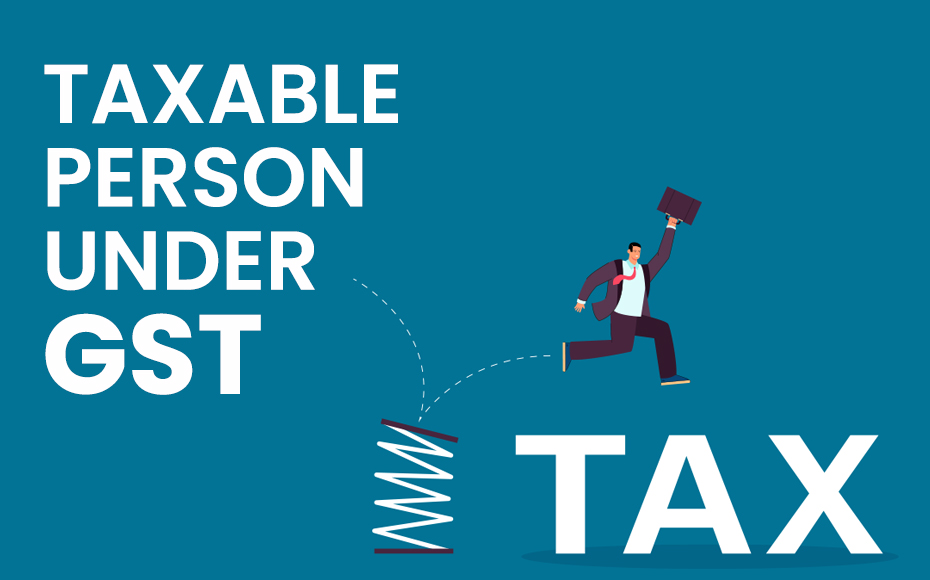

January 18, 2022

A taxable person under GST is a person who manages a business in India needs to be registered under GST Act. Anyone who deals with economic activity such as trade and commerce is considered a taxable person under GST.
‘Person’ here refers to individuals, HUF, company, firm, LLP, an AOP/ BOI, any corporation or Government entity, body corporate incorporated under laws of a foreign country, co-operative society, local authority, government, trust, and artificial juridical person.
The following categories are liable for GST registration
A person who periodically supplies goods and/or services in a territory that is under GST jurisdiction but he does not own a fixed place of business. Such a person is considered as a casual taxable person under GST.
For instance, A person who has a place of business in Kochi supplies his goods in an exhibition in Mysore where he has no place of business would be treated as a casual taxable person in Mysore.
When a non-resident occasionally supplies goods/services in a territory where GST is applicable but does not own a fixed place of business in India. He will be considered a non-resident under GST. It is similar to the above except the non-resident does not have a place of business in India.
Input service distributor denotes an office of the supplier of goods or services which receives tax invoices on receipt of input services and furnishes tax invoices for distributing the credit of CGST/SGST/IGST paid on the said services to your branch with the same PAN. It has to be a supplier of taxable goods or services having the same PAN as that of the office meant above.
Thus, only credit on ‘input services could be distributed and it won’t be distributed on input goods or capital goods. It is a new concept for assessees who are at present unregistered as input service distributors. However, this is optional in nature.
A composition taxpayer is a taxpayer who is registered under the composition scheme who is not required to collect GST from their customers at normal rates. But, he could make the payment of tax at a nominal rate or lower rates to the tax regime based on their turnover or receipts on a quarterly basis as they file CMP-08.
There are certain criteria specified for such taxpayers. At the beginning of GST, only suppliers of goods were able to choose into the composition scheme governed by Section 10 of the CGST Act with annual turnover up to Rs.1.5 crore. From 1st April 2019 onwards, service providers were also given a choice to opt for a similar scheme. The annual aggregate turnover limit has to be up to Rs.50 lakh.
A registered taxpayer who is required to file a return in GSTR-3B, and who has an aggregate turnover of up to Rs.5 crore rupees in the prior financial year, has an option to submit for the QRMP scheme. A taxpayer could also file GSTR-1 and GSTR-3B once in a quarter while making tax payments every month in form PMT-06. Moreover, if B2B sales invoices require to be uploaded on the GST portal monthly, then Invoice Furnishing Facility (IFF) could be used.
A casual taxable person or a non-resident taxable person shall apply for registration at least five days in advance of the commencement of business. Section 24 provides for special provisions regarding the casual taxable persons and non-resident taxable persons in GST.
A casual/non-resident taxable person could get a tentative registration for a period of 90 days and that is extendable for additional 90 days. A person who gets registration u/s 24, needs to make an advance deposit of GST that is based on his estimated tax liability.



